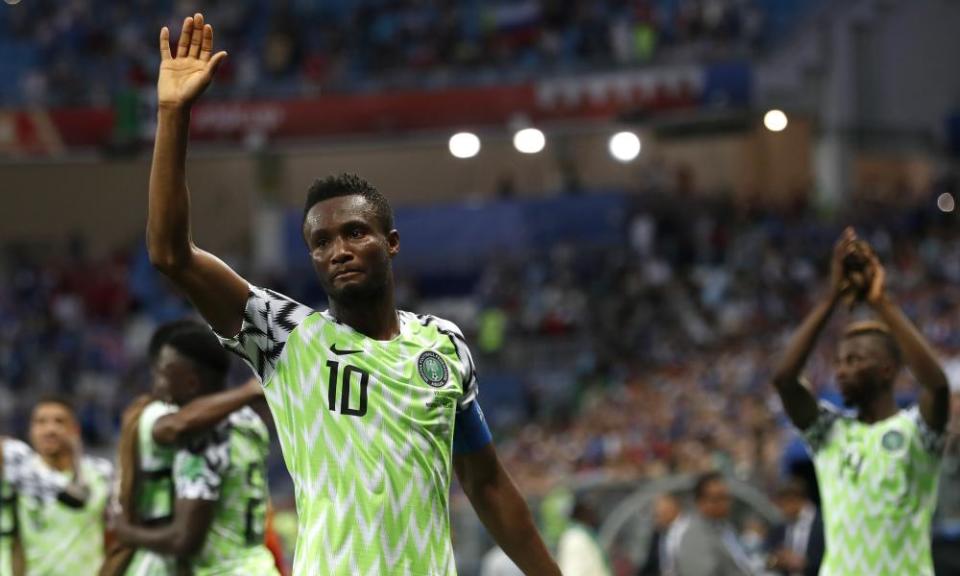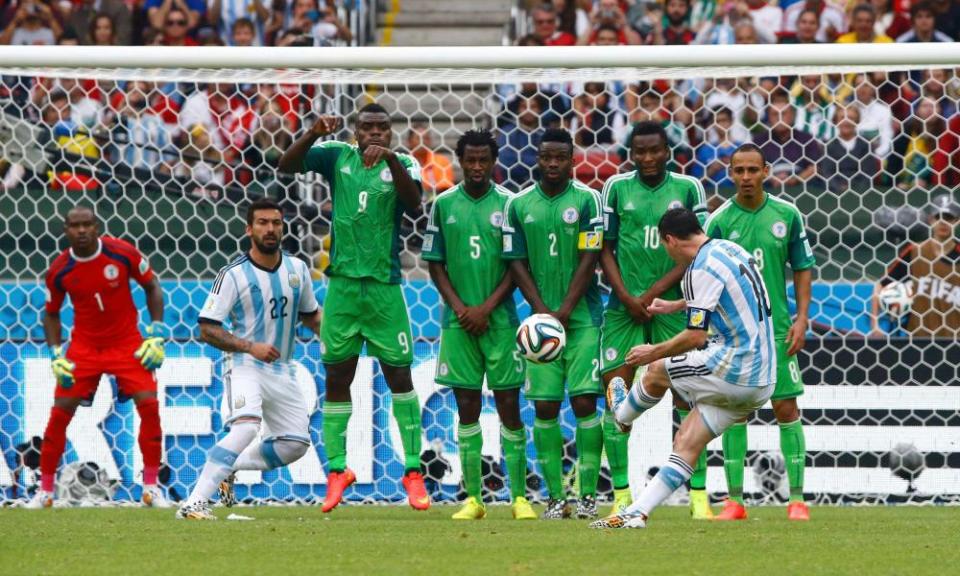Mikel aiming to turn tables 13 years after Messi took his Golden Ball

Mikel John Obi smiles. “Yeah, Messi stole the Golden Ball off me,” the Nigeria captain says, and he remembers how it happened as if it were yesterday. The story comes from the World Youth Championship of 2005, when Mikel drove Nigeria to the final, where they faced a Lionel Messi-inspired Argentina.
“Before the game people said that I was going to win the Golden Ball for being the player of the tournament,” Mikel says. “But then Messi scored twice, both of them penalties, Argentina won 2-1 and I got the Silver Ball. Messi has kept on stealing awards from me!”
Cue more laughter. The serious point is that Messi has been messing with Nigeria and Mikel for too long. Indeed, Argentina have held an Indian sign over Nigeria at World Cups going back to 1994, when the African nation first qualified.
Nigeria are contesting their sixth World Cup and it is a remarkable detail that they have been drawn to face Argentina at the group stage in all but one of them.
In 1994 they lost 2-1 to a pair of Claudio Caniggia goals in a game that saw the biggest bang come afterwards, when Diego Maradona failed a drugs test, was sent home and banned. He would never play for Argentina again. Nigeria suffered 1-0 defeats in 2002 and 2010, on the back of goals from Gabriel Batistuta and Gabriel Heinze respectively, and in 2014 they lost 3-2.
Mikel played in that game, having missed 2010 through injury, and so did Messi, who scored twice. Messi had also played in 2010 and he was a star of the Argentina team that won gold at the 2008 Beijing Olympics, when they beat Nigeria in the final, with Ángel Di María scoring the only goal.
Nigeria can point to the 1996 Atlanta Games, when they beat Argentina 3-2 in the final. That team were from the golden age of Nigerian football and featured Kanu, Jay-Jay Okocha and Sunday Oliseh, among others. Emmanuel Amunike scored a stoppage-time winner. The triumph is fondly remembered but, in terms of tournament successes against Argentina, it stands in glorious isolation.
Mikel and his teammates are determined to break the World Cup jinx when they take on Argentina in Tuesday’s Group D finale in St Petersburg and it has the ingredients of the most decisive meeting between the countries yet.

Nigeria know that after the 2-0 win over Iceland, another victory would ensure qualification to the last 16 while a draw would be enough as long as Iceland do not beat Croatia by a couple of goals. Even then Nigeria could go through on goals scored. For Argentina, the equation is simple. Only a win would keep their hopes alive.
The subplots are numerous and mouthwatering and yet Messi, inevitably, feels like the central figure. His travails against Iceland and the horror-show loss to Croatia have been well-documented but Mikel knows better than to view him as anything other than the player he and his teammates must stop.
A certain human being wasn’t playing. Actually, is he even a human being? Messi is Messi. He decides games
Nigeria beat Argentina 4-2 in a Krasnodar friendly last November and they draw a measure of strength from the result. But it was significant that Mikel highlighted how Messi had not featured on that occasion.
“A certain human being wasn’t playing,” Mikel says. “Actually, is he even a human being? Messi is Messi. He decides games and the last time we met he scored two against us at the Brazil World Cup. Without him, they are definitely less of a team. We can’t put all our attention on Messi but he is the man that we need to stop. Do we have to put somebody to mark him? Maybe yes, maybe no because when you do that you are playing with less balance.”
Nigeria played with great balance and purpose against Iceland, when Ahmed Musa scored both of the goals, after the manager, Gernot Rohr, made a tactical change. He abandoned his usual 4-2-3-1 formation and went with 3-5-2.
Mikel, who made his name as a defensive midfielder over 10 and a half seasons at Chelsea and plays for Tianjin Teda in China, has typically operated as a No 10 at international level. It was where he played in the opening group tie against Croatia, which Nigeria lost 2-0.
“I was playing as a No 10 before I went to Chelsea but [José] Mourinho converted me to a holding player,” Mikel says. “I enjoy it. When I was at Chelsea and there was a national team break, I’d go there and I’d enjoy it. I’d have this one or two weeks of freedom – to express myself and play the way I want. But at Chelsea, I did a job.”
Mikel did likewise against Iceland. Rohr started him in the central holding role, although he and the midfielders either side of him – Oghenekaro Etebo and the impressive Wilfred Ndidi – did get up and down the pitch. Rohr will weigh up whether to continue with the approach against Argentina.
And so here Nigeria are once again, confronted by the opponents who have become their nemesis. “We knew we would get them,” Mikel says. “I said to a friend of mine: ‘Trust me, Argentina are going to be in the same group as us.’ It’s crazy. I don’t know why but it keeps happening.”
Mikel and Nigeria crave a different ending.

 Yahoo Sport
Yahoo Sport 





































